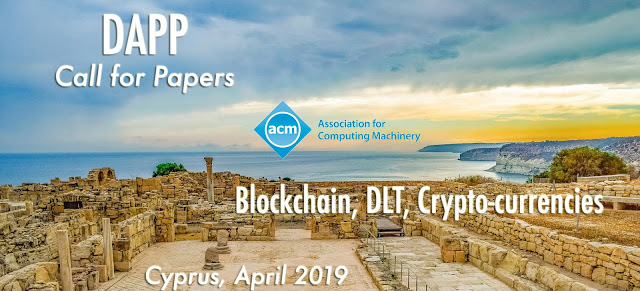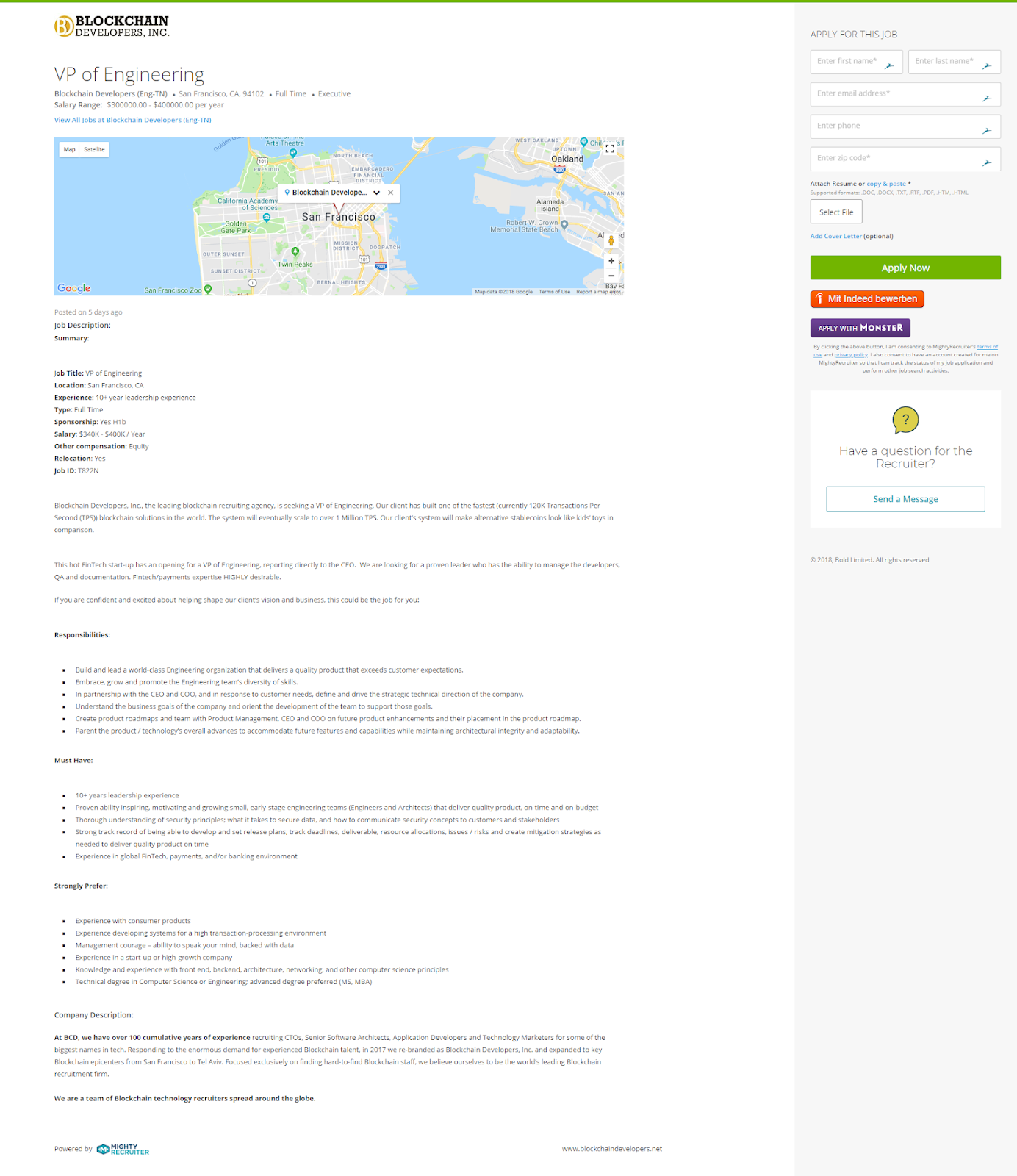Blockchain certification
High demand growth for blockchain engineers
In a report released at the end
of February 2019 by Hired recruiting company, the demand for blockchain
engineers has increased by more than 500% year-over-year. Glassdoor and
LinkedIn also found that blockchain engineers jobs increased in 2018. Thus,
although the cryptocurrencies and ICO tokens market has suffered major losses,
blockchain technology is expanding. Moreover, big companies are strongly
entering the field too, soon Facebook releases its first token to its hundreds
of millions of users.
Moreover, Hired report underlines
that blockchain engineers are the software engineers with highest salaries,
especially in France, with an average salary in the different countries covered
in the report of above 105 000 $, knowing that of course salaries in San
Francisco Bay are much higher because high-tech salaries are usually higher
there than in other countries such as France. Switzerland has also higher
salaries compared to other countries and the demand is high too thanks to its
different blockchain business complementary regions: Zug Crypto Valley, Zurich
TrustSquare and Geneva Trust Valley.
Official certificate on blockchain development
University of Geneva Certificate
of Advanced Studies (CAS) on blockchain development is an official certificate
worth 12 European credits, recognized in many countries in the world. Registration
is open until July 10th 2019 to start the 3-month sessions on site
or via video-conference on Fridays and Saturdays mornings from mid-September to
mid-December. Full information on the following link: https://www.cas-blockchain-certification.com/en/cas-blockchain-switzerland
If you’re not a programmer, you can still participate to the 1st module
on blockchain technology basics, legal aspects (ICO, STO…) and tokenomics,
which will also be the occasion to discuss with the programmers who may code the
business use-cases during their end of study code project. And if you’re a
programmer who already knows the technical basics and just want to learn Ethereum
programming, it is possible to do the 3rd module on Ethereum
programming without doing the other modules.
Anyway, you will be sure to select
the most appropriate blockchain platform for your use case if you collaborate
with one of the certified programmers who have successfully passed the CAS
blockchain at University of Geneva because this CAS gives a broad overview of
the different DLT solutions available with their advantages and disadvantages
(NEO, Ethereum, Hedera Hashgraph…)



